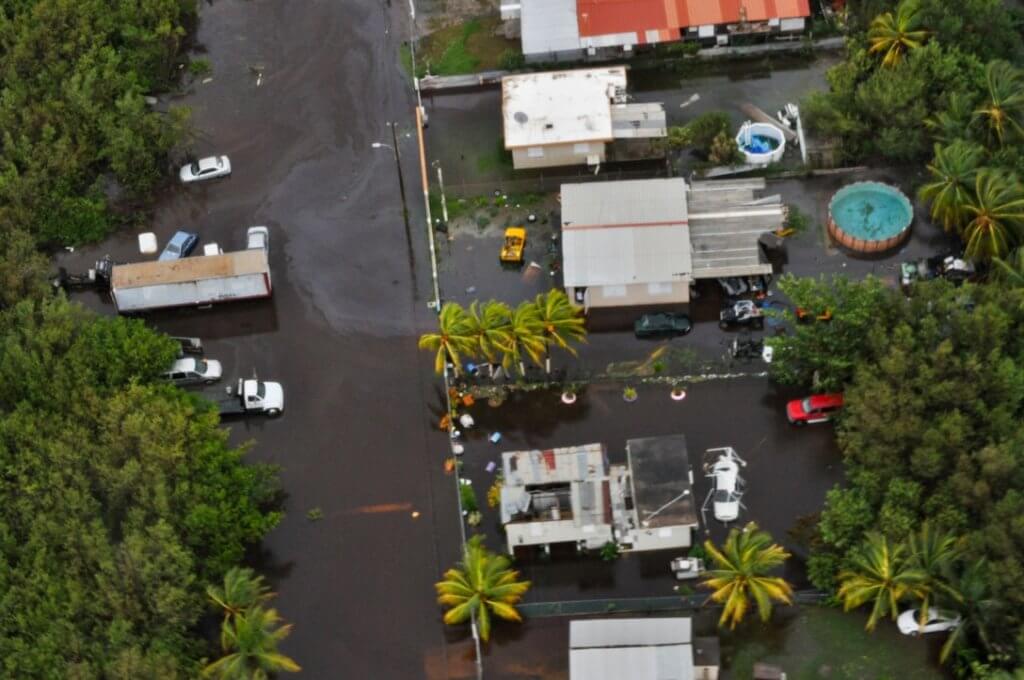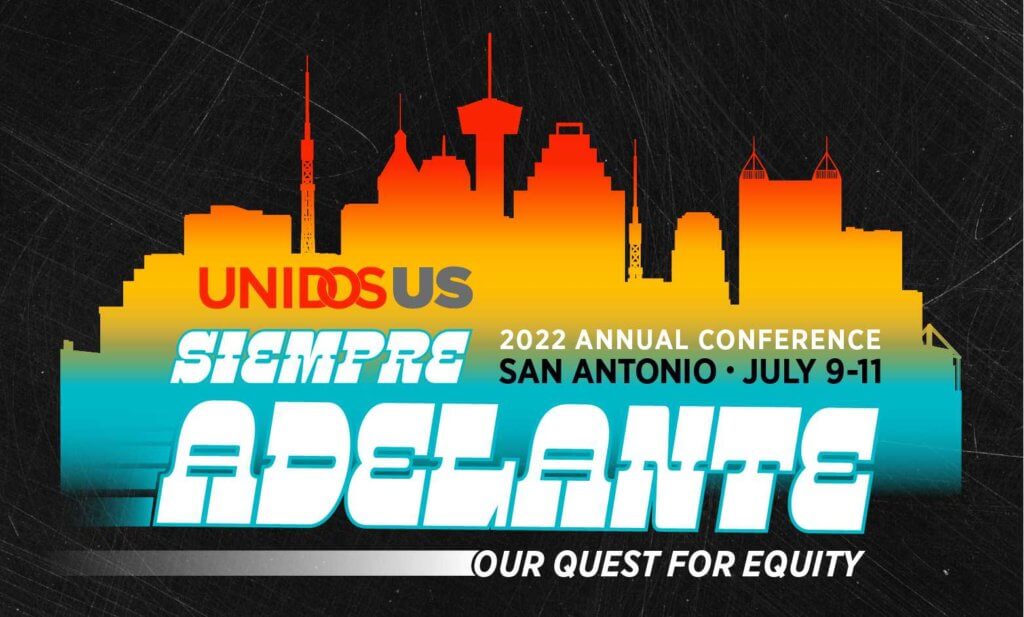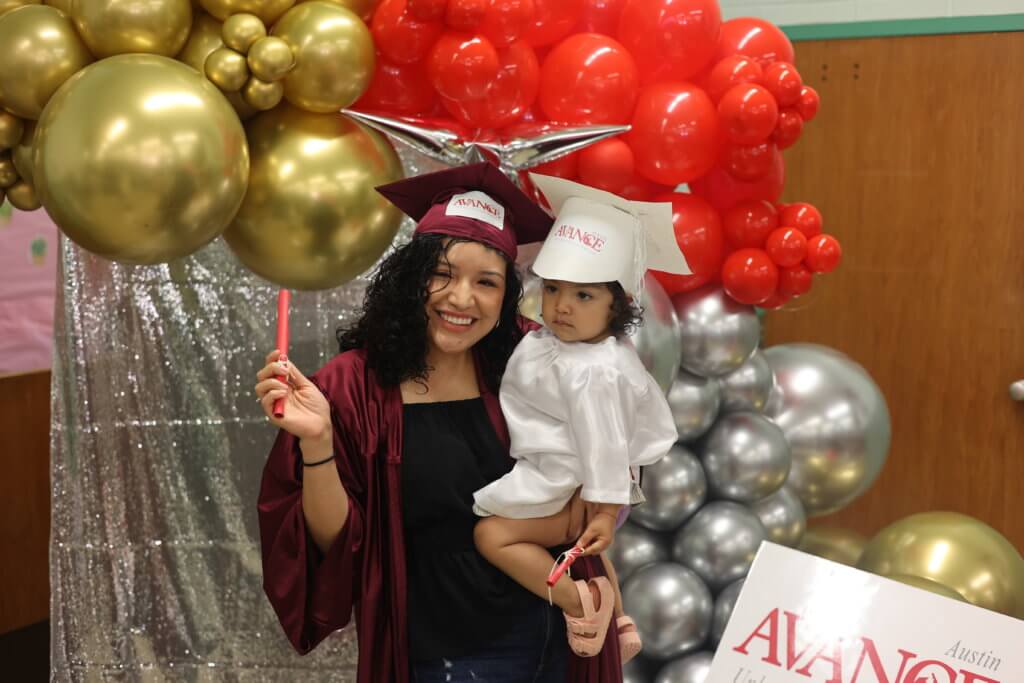“Ibero was my life for over 30 years”
Hilda Rosario Escher, former President and CEO of UnidosUS Affiliate Ibero American Action League—2018 Northeast Affiliate of the Year—has placed Latinos in Rochester, New York, on the map, with her unapologetic work to elevate our community, her fearless attitude to get what our community needs, and her strong commitment to improve Latino lives.
By Beatriz Paniego-Béjar, UnidosUS Content Specialist
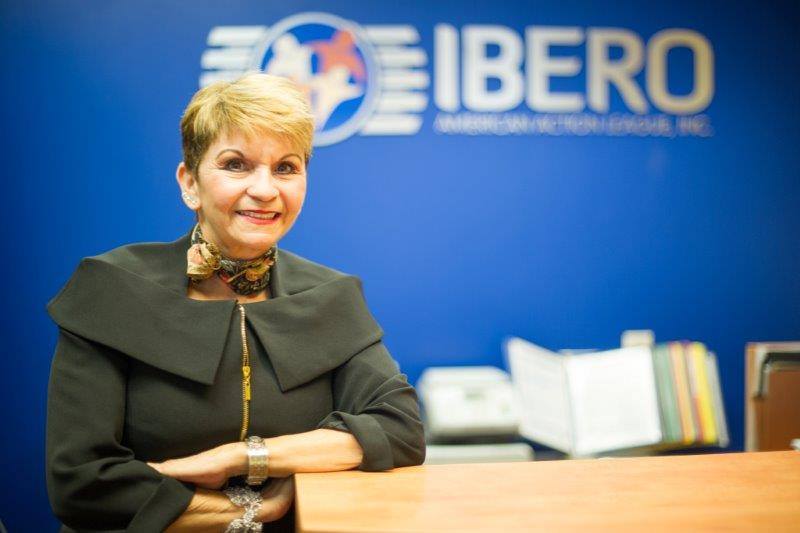
If there’s something you are going to learn about Hilda Rosario Escher, the former President and CEO of UnidosUS Affiliate Ibero American Action League (Ibero or IAAL), it’s that she’s not scared of a new challenge. The nonprofit world has taught her that you either sink or swim, and “I am a swimmer,” she says.
Keep up with the latest from UnidosUS
Sign up for the weekly UnidosUS Action Network newsletter delivered every Thursday.
Rosario Escher is leaving Ibero as the 2018 UnidosUS Northeast Regional Affiliate of the Year, and in a very strong position for the years to come.
Escher arrived in Rochester, New York, in 1974 from Puerto Rico, looking for better opportunities. She knew she first had to improve her English, and that’s how she found IAAL, where she signed up for their Bilingual Secretarial Training Program. After two weeks, the teachers told her that her English was good, she just needed to get comfortable speaking it. “So, they told me to answer phones to lose my fear. From there, a position as coordinator of the Bilingual Secretarial Training Program opened, and I got the job,” Escher explains.
That was the beginning of more than 30 years at Ibero, where she held the positions of Director of Day Care Services, Director of Foster Care Services, and Director of Developmental Disability Services before becoming IAAL’s President and CEO in 2006. During this time, her accomplishments list the following: growing the division for developmental disabilities from a $350,000 budget to $7 million, launching the first Upstate New York 24-hour Latino radio station, and increasing scholarship opportunities for high school students from eight to 86.
What’s clear is that everything she touched at Ibero shined and excelled, because she was never afraid of asking questions, and of doing whatever needed to grow her programs and the number of people served. Ibero’s foster care program is a perfect example of that.
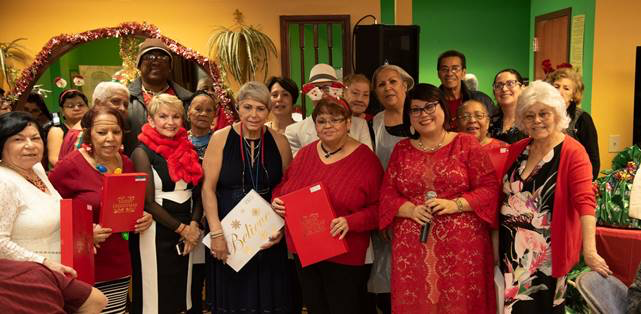
UnidosUS: How did Ibero’s Foster Care Service differ from others under your leadership?
Hilda Rosario Escher: I wanted to turn that traumatic experience for those kids into less of a trauma. And, I wanted them to be with the young people I was hiring, who were ready to make a difference in the world. When I started, we only had around 20 kids in foster care. By the time I left, we had 70. I used the modern approach to foster parenting of being a partner and a role model to these kids. We worked together to include the life of the whole family.
The other thing I did was meet with the parents and tell them that their kids couldn’t remain in foster care for the rest of their life, that I gave them 18 months to change their life or I would file for termination of parental rights for those kids to be adopted. At the same time, we didn’t have an adoption program; there wasn’t one here that would cater to the needs of the Latino kids. So, I started taking control of that program too. We were successful at returning kids to their families, and we were successful at returning the parents’ rights, and also moving the kids for adoption very quickly.
UnidosUS: What would you say was the biggest professional lesson you learned from that experience that helped you eventually become the leader of Ibero?
Rosario Escher: Creating a team. That was really, really important: having the right people that had your vision and that could carry the vision. I think that we all had the same motivation, and we all had the same type of love and care for the kids and for the community. And for me, that was really important. That team stayed with me for a long time, even though there were very challenging days. I always made sure that they had time to laugh, time to take in all of what we were seeing and living. I wanted them to talk about what they were experiencing because I wanted them to be healthy emotionally, so they could do their best work. And I had such a strong team, who loved the kids and loved work.
UnidosUS: And it was the great success of this program that earned you a promotion to become the Director of Developmental Disability Services.
Rosario Escher: Yes, and let me tell you, I had no clue about developmental disabilities. Nonprofits put you in a position, and you either sink or swim. So, first thing I did was look for someone who could help me learn, so I called the state and they were very helpful. They told me to learn the regulations. And with regulations you have to develop policies, you have to develop procedures, and you have to be able to train staff to take care of all of that.
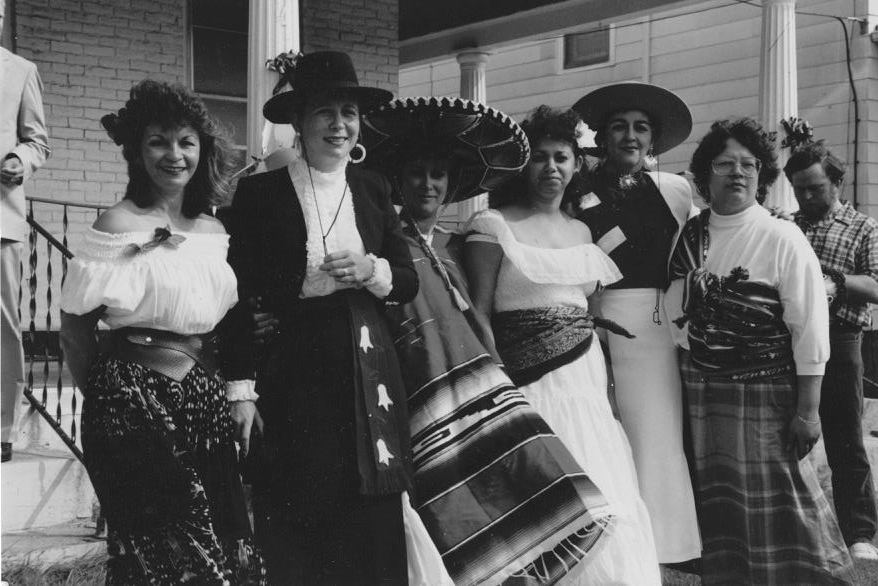
UnidosUS: How did you do all that and what recommendations would you give to an organization that is in those stages like Ibero was, and want to grow like you?
Rosario Escher: I think that you have to have the conditions, and you also have to work hard. Like for the developmental disabilities position, I didn’t have things structured, but I was willing to be the human resource person, the trainer, the quality assurance, I learned everything about nursing so I could supervise nurses… So, if you’ve got that passion and you are willing to learn, you can do all of that. Don’t feel bad about saying “I don’t know,” and be brave to take on what your community needs. For example, there were hardly any services for those with developmental disabilities in the city of Rochester for minorities. So, the families were taking their loved ones to places an hour away, and they couldn’t see them. They came to me and asked me to help them, and I developed this program.
UnidosUS: Ibero launched the area’s first 24-hour Spanish radio station in November of 2015, Poder 97.1. Why was having a radio station key to IAAL?
Rosario Escher: I worked on it for 10 years, because I knew my community needed it: they would tell me. Getting the radio station was very difficult, and when we finally got the frequency, I needed then to find the finance. So, I started talking to people and I went to visit this man, who was a millionaire, and he told me, you are such a treasure to Rochester, and no one had ever told me that. I never saw myself in that light. And he gave us the money, and we launched the radio station three years ago. And let me tell you, the community just loves that radio station: it has brought the community together, because we are not just a station for entertainment, but we also educate and inform the community. And when Hurricane Maria came, that was a gamechanger.
UnidosUS: Talking about Hurricane Maria, Ibero did a lot for the Puerto Rican community that was displaced to Rochester.
Rosario Escher: Approximately 5,000 families moved to Rochester. I went to Puerto Rico after Maria and I was completely devastated. I came back and I had to give. I thought I couldn’t do a lot for the families of Puerto Rico, but I could do something for some of them that come here. And we had already done a telethon where in six hours we raised over $100,000.
UnidosUS: How was the process that your organization put in place to help all these Puerto Ricans?
Rosario Escher: I called a meeting of the town executives. The city called hospitals, schools, the department of labor, I mean, we had like, 40 agencies sitting around the table talking about the families that were coming. There was an empty building that was going to be prepared to be turned into affordable housing, we asked if we could use it as a multi-agency welcoming center for the time being and have the agencies all in one place. We contacted the county, and we put a sign at the airport saying: “Welcome to Rochester, if you are coming from Puerto Rico from Hurricane Maria, you can call here, and you can go here.” We had a thousand families the first day.
UnidosUS: Even to this day, and especially after Hurricane Maria, Rochester has a sizeable Latino community, but it still isn’t widely known about, it still isn’t considered a “Latino” city. How were you able to get Latinos the services they needed when you had a relatively small footprint outside of your leadership, how were you able to connect with these stakeholders and create this influence for Latinos politically in a nonpartisan sense to be able to move this agenda that you had?
Rosario Escher: I would go to Albany and visit elected officials from both parties. From there, I was appointed to the regional Community Development Council, when Governor Cuomo came to be the governor, and, from there, I continued developing these relationships, and bringing the messages from my community.
But, you know, I think that you can’t be a leader in the community if you shy away, you’ve got to be able to be active in some tables, and those tables that exclude you, you know, I didn’t care: I went my own way and I got things done. You just don’t take no for an answer. When you have your vision, you have your strategic plan, go for it, don’t put it on the shelf to collect dust. Just implement that structure and plan, and don’t take no for an answer, just do it.
UnidosUS: That attitude has taken Ibero to where it is today, and that attitude comes from the way you see what you do as a mission.
Rosario Escher: For me what I have done, it was not a job, it was my mission, to elevate our community, the community that I love, whether it’s in Rochester, in New York City, it doesn’t matter where. If we don’t work hard and advocate, nobody will do it for us. So, for me, it has been more of a mission and it will continue.
UnidosUS: So, what comes next?
Rosario Escher: One of the reasons why I decided to step down is because I believe we need some representation. I think that our community needs quality representation, so, there’s a senator that is going to be stepping down, and I’m going to be running for that seat. In January, I’m going to announce my candidacy for a seat in the New York State Senate. So, whether I win or not—of course, I hope I’m going to win—but if I don’t, at least, there was a Latina that was running for office, and we can no longer be quiet in that area. So, that has been my story.
UnidosUS: And this is only the beginning.
Rosario Escher: I am going to step down from Ibero. That doesn’t mean that I am going to stop.
UnidosUS: What would you want people to remember about your legacy at Ibero?
Rosario Escher: The agency is considered the premier agency here in Rochester. We have a great reputation, and I left it in really good shape, with a reserve of $2 million. But for me it’s all about the community: what I love is the community, and if we don’t do this work, who’s going to do it? No one is going to do it for us.
UnidosUS: And that’s what you have taught our next generation as well, through your mentorship.
Rosario Escher: Yeah, and that is really important: we have to make sure that the youth is mentored, that they are taught that they have a social responsibility, and if they don’t do it, who’s going to do it? I sit in many different tables and part of that is mentoring many different Latinos and Latinas, because, you know, we have to make sure we have them coming up and that they are learning from us that they have to continue carrying our community forward.
